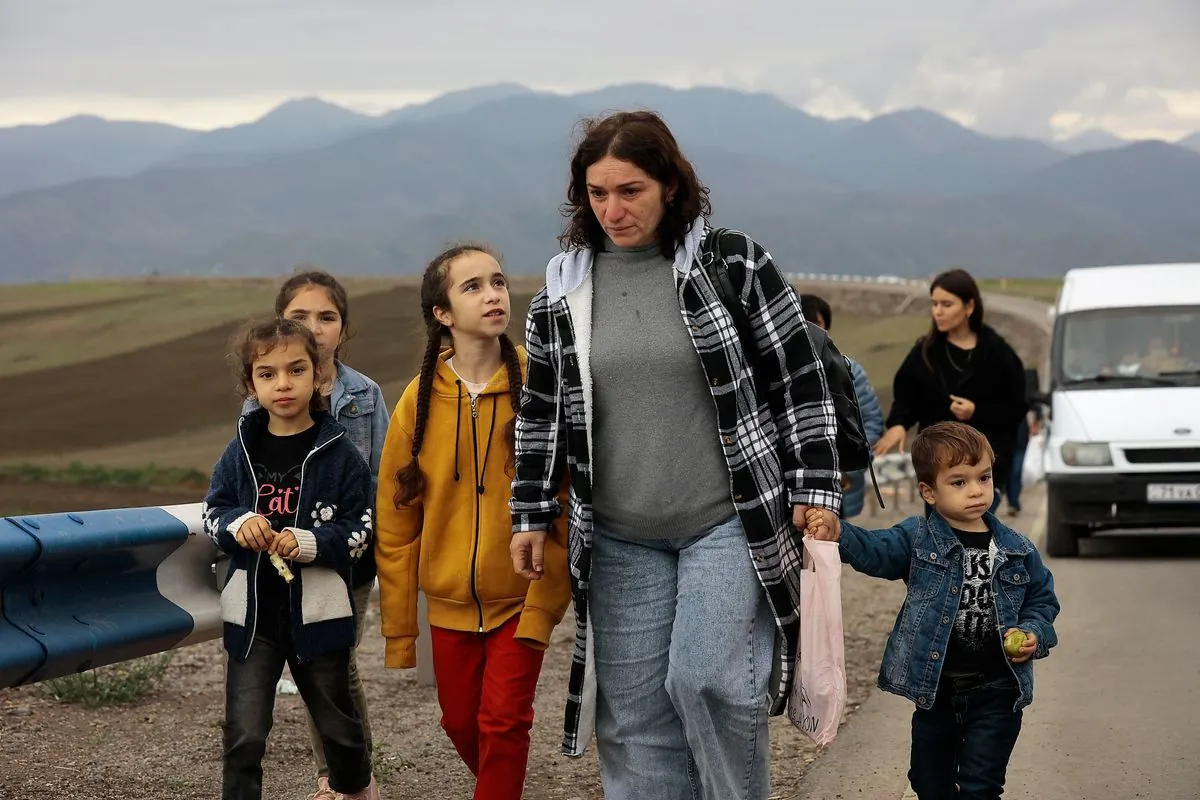One year ago, a significant geopolitical shift occurred in Europe as the Republic of Artsakh, also known as Nagorno-Karabakh, ceased to exist as a de facto state. The region, internationally recognized as part of Azerbaijan, saw the exodus of approximately 120,000 ethnic Armenians to neighboring Armenia.
The conflict in Nagorno-Karabakh has a long and complex history, dating back to 1988. Over the past three decades, the region has been the subject of two wars between Armenia and Azerbaijan, resulting in over 30,000 casualties. The area, known for its mountainous terrain and rich cultural heritage, has been a point of contention due to its strategic location and natural resources, including gold and copper deposits.
In April 2024, conversations with refugees in Yerevan revealed deep-seated concerns about the loss of ancestral homes and the potential destruction of Armenian cultural landmarks that have stood for centuries. The situation highlights the human cost of territorial disputes and the challenges faced by displaced populations.
The international community's response to the mass displacement has been notably muted. Recently, David Lammy, the UK Foreign Secretary, referred to Azerbaijan's actions as a "liberation" of territory lost in the early 1990s. This characterization has drawn criticism for its apparent insensitivity to the plight of the displaced Armenians.
"Azerbaijan has been able to liberate territory it lost in the early 1990s."
This statement contrasts sharply with the UK government's approach to other global conflicts, such as its frequent commentary on the Israel-Palestine situation. The discrepancy in diplomatic language has raised questions about consistency in foreign policy and the potential impact on regional stability.
The Nagorno-Karabakh issue is further complicated by shifting geopolitical alignments. Armenia, traditionally aligned with Russia and a member of the Collective Security Treaty Organization (CSTO), has recently shown signs of distancing itself from Moscow. In June 2024, Armenian Prime Minister Nikol Pashinyan announced the country's intention to leave the CSTO, signaling a potential pivot towards the West.
However, Lammy's recent comments may inadvertently hinder Armenia's efforts to build closer relations with Western nations. The diplomatic misstep underscores the need for nuanced understanding and careful communication in complex international situations.
As the region continues to grapple with the aftermath of the conflict, the international community faces the challenge of addressing the humanitarian needs of displaced populations while navigating the delicate balance of regional politics. The situation in Nagorno-Karabakh serves as a reminder of the lasting impact of historical conflicts and the importance of thoughtful diplomacy in fostering peace and stability.
